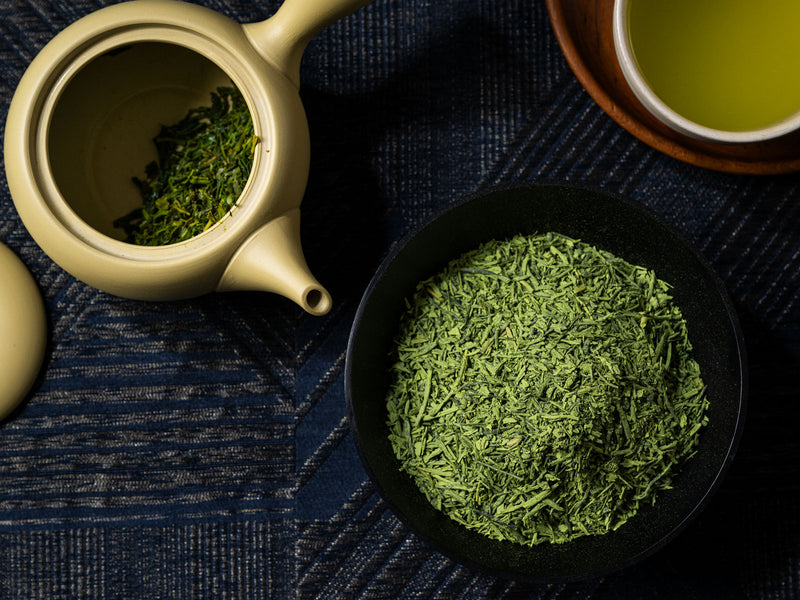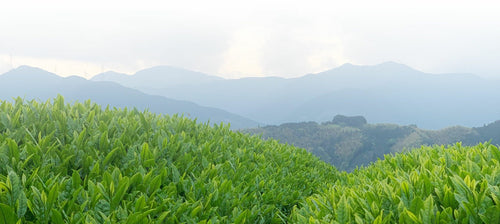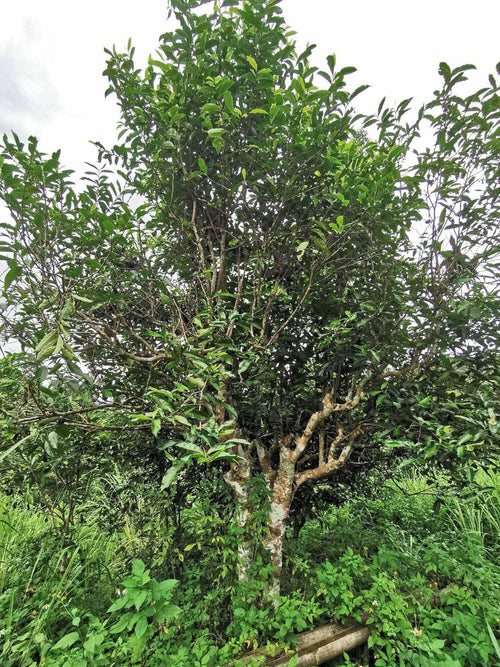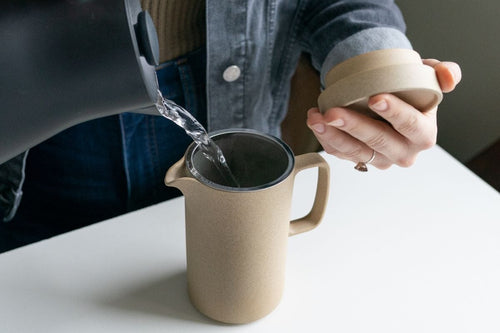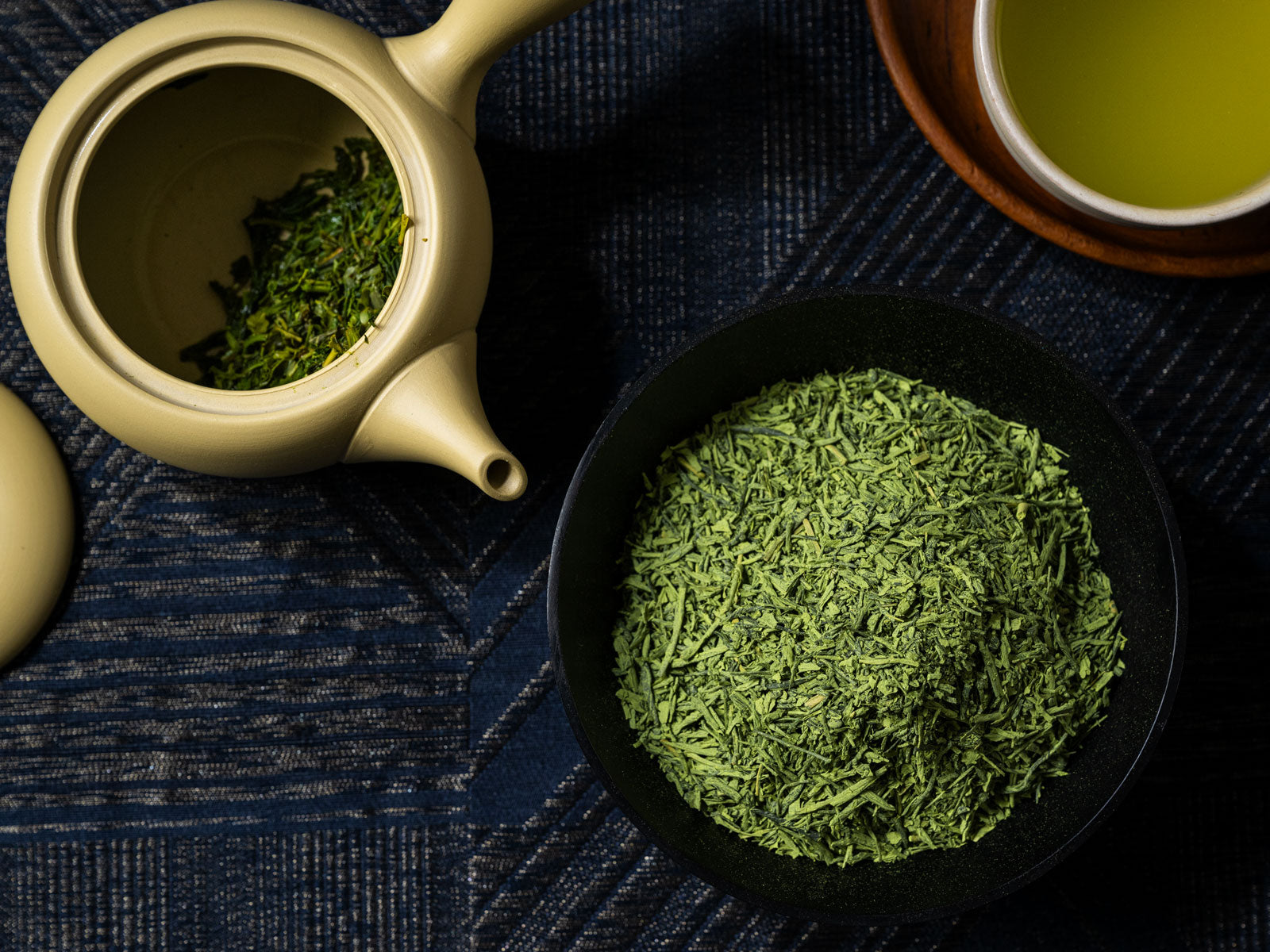FAQ
General
If you are looking for Rishi Tea & Botanicals we encourage you to check the tea aisle of your local grocery store or ask for it at your local coffee shop. Our products can often be found at Whole Foods, Cost Plus World Market, Wegmans, The Fresh Market, Sprouts, Publix and many other local grocers.
If you are interested in seeing Rishi offerings in a market, cafe, or store near you, please share with your local merchant!
Rishi is an online and wholesale retailer. You can place your order directly from our online store or find us at select markets, retail stores, cafes, restaurants and hotels.
Shipping & Returns
We are unable to retroactively apply discounts once an order has been placed.
Discounts and/or promotions cannot be stacked. If you’ve already taken advantage of a discount or promotion, we will not be able to apply another one to your order.
In effort to get our customers their orders as fast as possible, your order is immediately sent to our fulfillment team and we are unable to make changes to the order details, including address changes, item changes, and cancellation requests.
FedEx is our preferred shipper for all contiguous US orders. We offer multiple FedEx options to ensure convenient delivery to a range of addresses. If you are unable to receive FedEx deliveries, contact us at Customer Service or 844-467-4744 to place your order.
Orders shipping to APO, AK, HI, AA, AP, AS, FM, GU, MH, MP, PW, PR, VI are shipped via US Postal Service. During checkout, USPS shipping will automatically apply to orders going to regions listed above.
At this time, we do not ship internationally outside of the U.S. or Canada.
If you are interested in Rishi products outside of North America, please contact us and we will evaluate the possibility of international shipping.
Yes! We do ship Canadian orders via Delivery Duty Paid (DDP) shipping through FedEx. Duties and fees are collecting during checkout.
A shipping confirmation will be sent to your email when your order ships. This email includes either a FedEx or USPS tracking number.
You can also follow your order through your account on our website, you can find tracking information under “My Account” > “Past Orders / Shipments”.
Orders sent via FedEx can be tracked with the tracking number provided in your shipping confirmation email here- FedEx Tracking
Orders sent via USPS can be tracked with the tracking number provided in your shipping confirmation email here- USPS Tracking
Pending Status
When packages enter high volume facilities, FedEx automatically updates the expected delivery date to pending. Once your package enters a lower volume facility, a new expected delivery date will be generated.
Strange Routing
With FedEx Economy shipments, you may follow your package updates and notice that it has gone a strange way, or seemingly away from your address during its journey.
These packages must be sorted through certain facilities, and this may be why you see a strange direction on your tracking details. This process may also add additional transit days to your order. Be assured once sorted, it will arrive soon.
Extended Transit Times
We do our best to provide estimated times in transit, but please note transit time vary by carrier and distance, delivery may be extended past estimated days in transit. Please allow ample time for your order to arrive.
We work hard to ensure orders are filled correctly and completely, and all items are packaged carefully to prevent breakage. If you experience any problem with your order, please contact our customer service team for assistance. We’re happy to rectify any problems to ensure your satisfaction.
As a Safe Quality Foods (SQF) facility, we are unable to accept returns or exchanges, and we do not honor refunds if the issue is a matter of personal taste preference.
We do honor replacements or website credit for quality issues. If you feel the quality of our products is less than expected, please contact our customer service within 30 days of your order date. We will need the lot code and photos of the issue to process your inquiry.
Rishi Tea & Botanicals is dedicated to sourcing only the highest quality products and your experience is important to us. If you feel the quality of our products is less than expected, please contact our customer service within 30 days of your order date. We do not honor returns, exchanges or refunds if the issue is a matter of personal taste but do honor replacements for quality issues. We reserve the right to evaluate situations on a case by case basis as other restrictions may apply.
Please note, as an agricultural product, some seasonal variance is to be expected in the flavor profiles of tea. For this reason, we recommend purchasing smaller quantities such as our “Teaser” sample size, ensuring the tea is to your liking before committing to larger bags. For insight into the most recent crop tasting notes, our Customer Service team can help.
If you purchased your tea from a third party such as Amazon or Wholefoods, please note we lack access to your purchase history with these retailers, we kindly ask you to contact the retailer at which you purchased the items for the resolution of all product-related issues. We apologize that we can’t assist you directly with these purchases.
Caffeine
Caffeine is one of three stimulating alkaloids found in tea, the others being theobromine and theophylline. Theobromine is a mild stimulant found in greater concentration in chocolate.
In general, a brewed cup of tea has about 1/3 to 1/2 the caffeine of a cup of coffee. A cup of coffee has about 100-120 mg per 8 ounces. Most teas fall between 20-50 mg per 8 ounces. Contrary to popular myth, this average is true regardless of the type of tea (green tea, black tea, etc). This makes sense when you consider that all true tea is made from a single plant species, Camellia sinensis.
The cultivar or “cultivated variety,” is one of the most significant factors determining how much caffeine might be available in any given tea. Broad-leaf variety teas grown in Yunnan and Southeast Asia contain more caffeine than small-leaf varieties. But with hundreds of cultivars in existence, the range varies greatly.
Caffeine is more readily extracted at higher temperatures, so brewing tea at a higher temperature or for a longer period of time will result in a higher concentration of caffeine in your cup. For this reason, cold brew teas can contain less caffeine.
The six tea types are differentiated by their processing steps. The techniques used to process fresh tea leaves– such as rolling, firing, oxidizing, or drying– do not alter caffeine on a molecular level, and thus they do not affect the amount of caffeine contained in the fresh leaf. Teas that undergo baking or roasting in their final stages, such as Houjicha or Iron Goddess of Mercy, may lose some caffeine by pyrolysis, where the caffeine molecule is literally baked out of the tea leaves. In general, the processing methods do not affect caffeine content so various types of tea can have similar levels of caffeine.
A greater factor influencing the amount of caffeine potential in tea is the cultivar of the tea plant. The brewing technique also plays a large role in determining how much caffeine is extracted into the final cup.
We worked with an independent lab to measure the caffeine content of our packaged teas. The teas were brewed according to our recommended brewing instructions for temperature and infusion time, and then the caffeine content of the infusion was measured. We found that most teas registered within three tiers:
LOW: < 20 mg / 8oz cup
MEDIUM: 20 – 40 mg / 8oz cup
HIGH: > 40 mg / 8oz cup
An average cup of coffee contains about 90 – 120 mg / 8oz cup.
A decent amount! After a first 4-5 minute infusion, most teas have only released 30-50% of their total caffeine. The tea leaves will release the remaining caffeine in subsequent infusions.
There are some variables, of course. If a tea is made of very small leaves and leaf particles, more surface area is exposed to water, and more caffeine will come out in the cup. The water temperature also affects the extraction rate greatly.
No. It takes several minutes to extract significant amounts of caffeine from the leaf. Using higher temperature water and a longer infusion time will yield more caffeine in the cup. By contrast, cooler water and short infusion times do not extract as much caffeine.
Tea is known to create a more even, sustained lift compared to the buzz and crash of coffee. There are several reasons for this.
First, the amount of caffeine in tea is about 1/3 to 1/2 that of coffee. The peak of the tea high does not spike as high as the coffee jolt.
Secondly, there are other compounds in tea, such as l-theanine, that are attributed to relaxation. L-theanine is thought to evoke a feeling of relaxation.
Sustainability
Rishi tea bags are made from a plant-based material called polylactic acid (or PLA for short). PLA is an inert, DNA-free material that is produced by breaking down starches found in plant sources. Through this process, no plant DNA is left behind, making these hypoallergenic and allergen-free. PLA is NOT derived from petroleum and will not leak harmful plasticizers into your brew. True to our sourcing ethics and to help showcase Rishi’s high-quality teas and botanicals, this material is purposefully sourced to provide you and your family with the safest and most delicious cup of tea!
Biodegradable: PLA tea bags are designed to biodegrade in a high heat, commercial quality composting systems. This means conditions need to achieve at least 120°F, and 80% relative humidity for a sustained amount of time (about 2 months). This material will not breakdown in your cup of tea, even if left for many hours or days.
No glues, staples or metals: To help facilitate a biodegradable product, Rishi tea bags have a cotton string and printed-paper tag, only. This material is attached to the PLA mesh using ultrasonic+ high-heat vibrational energy. Pretty cool!
Give me the data: We’re glad you asked! Many organic food advocates, bloggers, rival tea companies and other sources have made statements based on ideas and assumptions that silky tea bags contain petroleum-based plastic or nylon and are unsafe. We felt it was time to take responsibility and set the record straight for the tea industry with scientific data and authentic testing results for actual PLA mesh material used for our silky tea bags.
We are confident our PLA tea bags are safe when enjoyed according to our brewing recommendations. We worked with an independent lab in Houston, one of the leading labs that tests for plastics in food products, to test both our PLA standard knit and special knit tea bag materials. We tested for BPA and commonly found plasticizers and phthalates that contaminate the global food supply. Our PLA mesh was tested using Gas Chromatography Mass Spectrometry (GC-MS), a technique that allowed the lab to analyze the chemical composition of PLA in its entirety. This testing method has a detectable limit of 2 ppm for most of the phthalates we looked for, and of 3 ppm for two of the phthalates.
Both PLA special knit and standard knit materials passed with flying colors. None of the phthalates we tested for were detected, even in trace amounts. This indicates that the PLA mesh used in our tea bags is completely BPA-free and phthalate-free. The United States Consumer Products Safety Commission (USCPSC) specifies that food products are deemed safe when they test below 1,000 ppm for the plasticizers we checked. With results of no detection, PLA goes well beyond the conditions required to comply with USCPSC standards.
It should be noted that there are several data reports showing that the common petroleum-based nylon and polyester silky tea bags on the market leach plastics, but our PLA material for tea bags is a different material and is not petroleum based. PLA based tea bags should not be linked to reports or tests of unrelated materials.
Tea & Food Safety
Similar to spices and coffee beans, dried tea leaves and powders will not “go bad” or spoil but can lose freshness over time. To maintain your tea’s quality, we recommend storing in a resealable container (they can stay in your Rishi resealable bag!) away from direct sunlight, heat , moisture and strong smells. Tea is hygroscopic—meaning it absorbs moisture and nearby aroma—so it is best to store teas away from other highly fragrant products like coffee, spices, or herbs.
A cool pantry or cupboard is perfect. Remember to gently push out any excess air when resealing the bag after use!
The March 2011 Tohoku tsunami and earthquake off of northeast Japan's Fukushima district was a terrible incident.
Since then the Japanese agriculture industry has maintained a stringent monitoring program to test for radioactive isotopes of Cesium and Iodine in all manner of agricultural products including tea.
Following the Fukushima incident, Rishi received annual test results from the Japanese tea industry, which have consistently shown Non-Detect results. Regular monitoring is still carried out in Japan to ensure the continuation of this trend.
All Rishi Tea products are free from ingredients containing gluten or dairy. Additionally, we do not work with ingredients containing or exposed to eggs, wheat, corn, soy, or shellfish. Teas containing hibiscus may contain peanut or peanut shell fragments, and we do use coconut and ramon nut in some tea blends, but follow a strict allergen control procedure to separate these ingredients from our allergen-free ingredients.
Natural flavors are concentrated liquid extracts made from real food ingredients. We use natural flavors to complement dried fruits, herbs, and other botanicals in some blends to create a complex depth of flavor that infuses deeply into the tea leaves. We use our natural flavors in compliance with USDA NOP organic standards.
All Rishi teas are free of GMOs. Fortunately, GMOs are not as significant an issue in the tea industry as they are in grain or produce markets. The tea plant, Camellia sinensis, is grown without genetic modification. Instead, hundreds of tea plant strains known as cultivars, or “cultivated varieties,” are bred and planted through traditional botanical methods like crossing. GMOs are explicitly forbidden under the USDA’s organic program, so any Rishi tea bearing the USDA Organic logo is free of GMOs.
The aim of the organic agriculture movement is to promote environmental sustainability by encouraging biodiversity, enhancing soil fertility and protecting the health of farm workers and consumers. In the US, organic agriculture and product labeling standards are regulated by a USDA certification program called the National Organic Program (NOP). The NOP certification prohibits the use of banned pesticides, herbicides, fungicides, growth hormones, GMOs, irradiation, sewage sludge, and artificial preservatives, flavors and dyes in crops, livestock and foods. Third-party certifying agencies make annual inspections to verify that an organic farmer, manufacturer, or product satisfies these standards. Compliant businesses are awarded the right to use the USDA Organic logo. You can look for this logo on over 95% of our tea and botanicals.
Rishi believes organic agriculture is an important part of leading a healthy, natural lifestyles and for restoring ecological balance to world in an age of global environmental degradation. One of Rishi’s founding principles was to help create and expand the demand for organic tea internationally. We have specialized in sourcing organically grown tea since we were founded in 1997—five years before the NOP standards were developed for tea in 2002. Today, we’re proud to be a leader in this market!
Beyond the USDA Organic certification, Rishi adheres to a robust quality control program that begins in the field. Our buyers spend months traveling to the tea farms each year to taste and evaluate quality during the peak crop seasons. This also allows us to experience our organic tea cultivation firsthand. Throughout the year, our Compliance team performs additional spot-testing on select teas to ensure our organic teas are free of pesticides and other contaminants.
What about your conventional (not organic certified) teas?
We celebrate the fact that organic tea is gaining popularity in tea markets worldwide, and farms across many growing regions are converting to organic cultivation to meet that demand. However, there are several classical tea growing regions where organic tea farms simply do not exist yet. The major oolong tea regions—Fujian, Guangdong, and Taiwan—are notable examples. Many oolong tea farms in those areas produce exclusive micro-lots of top shelf conventional teas for premium markets worldwide. Phoenix Dancong oolongs from Guangdong and High Mountain oolongs from Taiwan are some of the most expensive teas in the world. With such strong demand and high-end marketing, the farms have little incentive to seek organic certification. The same can be said for several of the tea regions in Japan that specialize in growing gyokuro or tencha for making matcha.
The good news is many of the farms in those areas—including our suppliers there—practice a range of “Integrated Pest Management” techniques to minimize their use of pesticides. The install solar-powered insect zappers, pheromone sticky paper traps and plant buffer zones to that effect. Since these are some of the most treasured and sought-after styles of tea in the world, we import these as specialty items for tea connoisseurs. These are some of the favorite teas enjoyed by our staff, and we would never sell a tea we would not drink ourselves.
Similar to spices and coffee beans, dried tea leaves and powders will not “go bad” but can lose complexity of aroma and taste over time. Each category of tea has a unique level of oxidation and freshness window:
Green and White teas will lose their freshness most quickly. We recommend consuming these teas within 2 months from the time you first open the package.
Matcha powders should be enjoyed within 2 weeks upon opening because the powder will undergo “post-oxidation” when exposed to air, transforming its bright green color into a stale shade of pea-green or yellow. This can be minimized by using proper storage method.
We recommend using Oolong, Black and Botanical teas within 4 months of opening, for the best flavor.
Lastly, roasted Oolong and Pu’er teas have the unique ability to ripen and develop complexity with age over several years if stored properly.
Good rule of thumb: know the category of tea, order what you need, employ proper tea storage practices and enjoy your offerings!
This depends on the size of the bag and the amount of tea used for each serving. In general, we recommend Rishi Loose Leaf Teas be measured at 1 tablespoon (4-5g) per 8 oz of water. A 250 gram bag yields about 50 – 60 servings and a one-pound bag (454g) yields about 90 – 120 servings. One of the joys of loose leaf tea is that you can re-infuse the tea leaves multiple times during each brewing session. Check the label and product description online for specific brewing tips for each category and type of tea.
